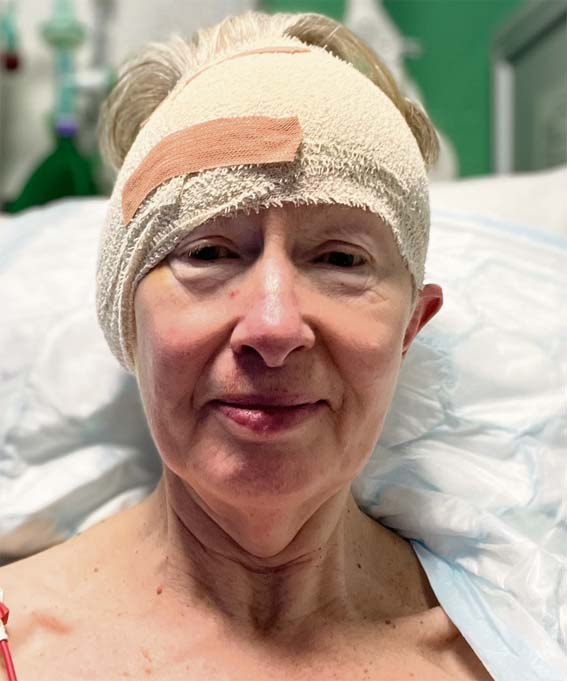‘Death’ of NHS is greatly exaggerated
FORUM: Yet writer Dee Searle finds inadequate funding and the push for privatisation has left the health service ‘creaking at the seams’
Thursday, 19th January 2023

Dee Searle is recovering from a three-hour operation at University College Hospital
GOING by my recent experience of major surgery, reports that the National Health Service is dying are greatly exaggerated (to paraphrase Mark Twain).
But years of inadequate funding and the Conservatives’ relentless push for privatisation mean the system is creaking at the seams.
Early this month I underwent a three-hour operation at University College Hospital to remove a large, invasive, non-cancerous growth from my middle ear and repair damage.
The positives were that I was treated safely by a top surgeon in the most advanced high-tech facility in the country, which helped avoid the risk of puncturing the brain membrane and damaging important nerves.
All staff were highly professional, diligent and kind as they seamlessly moved patients through the conveyor belt of check-in, pre-op preparations, surgery and recovery.
I was overjoyed to be told I could go home that day instead of staying in hospital overnight. Who wouldn’t want to be in the care of loving hubby channelling Hattie Jacques in Carry On Matron, rather than taking up a precious NHS bed unnecessarily?
However this is where the strains started to become apparent.
I tottered onto Gower Street with a heavily bandaged head, wondering why at least three apparently available black cabs failed to stop.
I’d been discharged with no medication, prescription or pain-management plan.
Hubby and I even had to remove the pressure dressings ourselves, with the only advice to “do it carefully”.
The medical information sheets cautioned: “You may have slight pain in the first two days following your surgery.” This was a world-standard understatement.
I had just had a small part of my skull cut away via a 10-centimetre incision, from which cartilage had been deployed to create a new eardrum.
My right ear was almost twice its usual size and in fetching shades of purple and crimson.
My medical record states that I’m allergic to ibuprofen and I was instructed against taking aspirin, so I was left with paracetamol, which made little impression.
It took almost a week of advice from friends and an eventual swift prescription from my GP before the pain subsided.
The palaver has not lessened my support for our fantastic NHS but the current system is clearly unsustainable.
Numerous experts have called on the government to reverse “the most prolonged spending squeeze” in history, inflicted since the Conservative and Liberal Democrat coalition government was elected in 2010.
During the decade before the Covid 19 pandemic, the United Kingdom spent around a fifth less on average per person on health care than other western European countries.
The government’s demands for widespread “efficiencies” are impractical. According to the University of York, NHS productivity increased by 16.5 per cent between 2004 and 2017 compared with 6.7 per cent in the economy as a whole.
Managers make up around 2 per cent of NHS staff compared with 9.5 per cent of similar grades in the wider UK workforce.
Strangely the government doesn’t mention potential efficiencies from reversing some of the £12.2billion-plus of private contracts awarded annually by the NHS.
This would bring back funds that end up as profits for companies and save on the staff needed to award and manage the contracts.
There would also be benefits from tackling environmental stresses such as air pollution, which causes 9,400 premature deaths a year in London from asthma, pulmonary disease and lung cancer, and costs the health service up to £3.7billion.
But, critically, a key improvement would be for those in power to stop regarding the NHS as a financial burden but as an investment in the health and wellbeing of current and future generations.
Some think tanks suggest a citizens’ assembly to develop a future for the NHS, shaped by people with lived experience.
I would certainly be up for chipping in.
• Dee Searle is a writer and community activist.